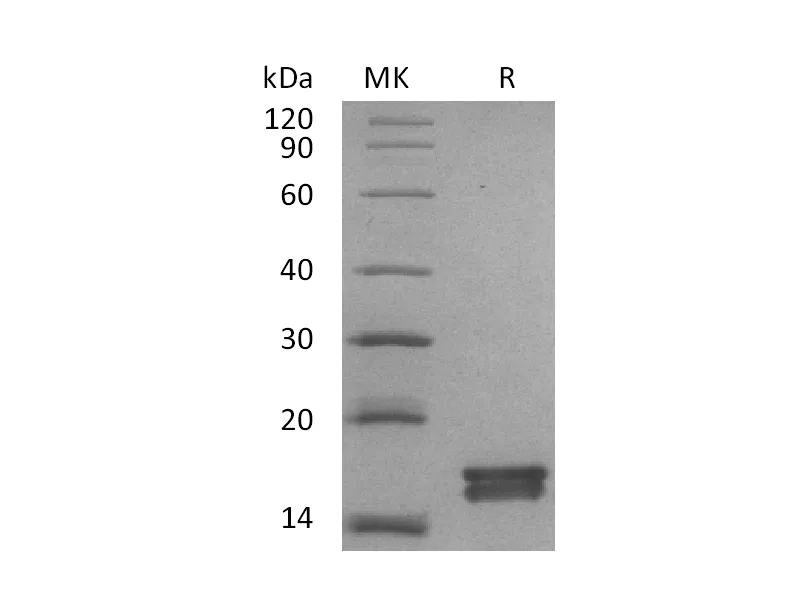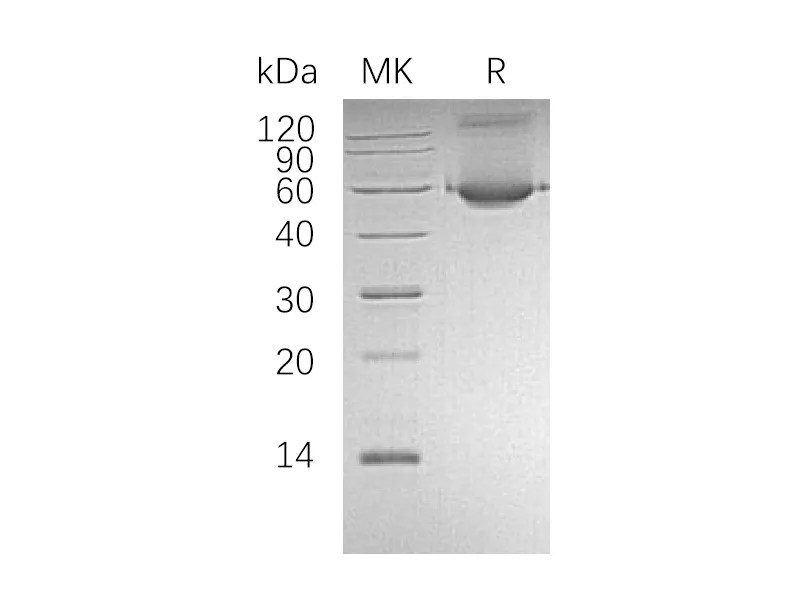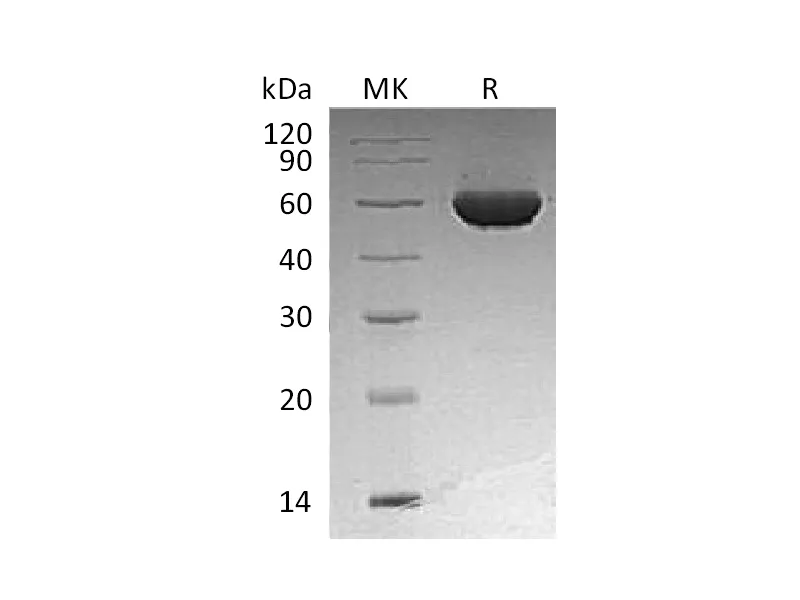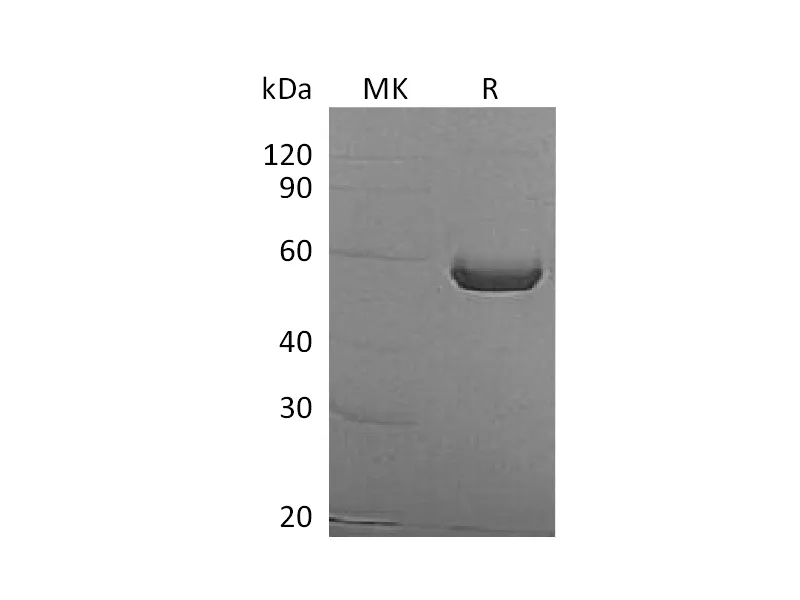Alternative Names
B-Cell Antigen Receptor Complex-Associated Protein Beta Chain; B-Cell-Specific Glycoprotein B29; Ig-Beta; Immunoglobulin-Associated B29 Protein; CD79b; CD79B; B29; IGB
Background
CD79B is a single-pass type I membrane protein. CD79B contains one Ig-like V-type domain and one ITAM domain. CD79B is required in cooperation with CD79A for initiation of the signal transduction cascade activated by the B-cell antigen receptor complex (BCR), which leads to internalization of the complex, trafficking to late endosomes and antigen presentation. CD79B enhances phosphorylation of CD79A, possibly by recruiting kinases that phosphorylate CD79A or by recruiting proteins that bind to CD79A and protect it from dephosphorylation.
Note
For Research Use Only , Not for Diagnostic Use.




